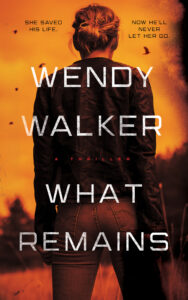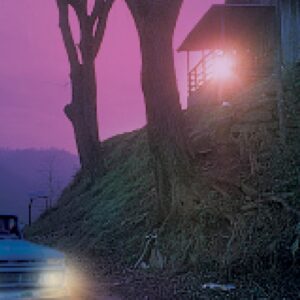From the moment I sold my first thriller, I’ve been acutely aware of genre. I’m not alone. The explosion of the psychological thriller in the wake of Gillian Flynn’s blockbuster Gone Girl created a wide lane for crime writers to steer into. Twisty twists and unreliable narrators became our calling cards, and book concepts were shaped to fit the mold. I owe my career to genre boundaries, so I was not about to start a rebellion.
In 2015, I was on the brink of quitting the business. I had been writing novels for a long time – long enough to get the message from the Universe that it just wasn’t going to happen. I was a divorced mom, co-parenting three children, managing a household and working as a family lawyer. Writing novels on the side was becoming impossible because there was no “on the side” left. I had run out of road.
At the time, I was writing contemporary fiction about women. Two novels had landed at a publishing house, so I’d begun work on a third. While it was exciting to be published, those novels did not launch a sustaining career. Conventional wisdom told me the third would not fare better. The market for what I was writing had softened. That was it, I thought. I had to be pragmatic. Realistic. I had to get some sleep. It was time to have a long cry, then finally hang up this dream.
But something still tugged at my sleeve. I knew I would always have regrets if I didn’t do one last thing. I needed to swing for the fences, and that meant reinventing myself. I would write a new book, and this time, I would pay attention to the story, but also to the market. The first step was asking what I could write that was more likely to achieve my goal.
I sought advice about what was trending with readers. Then I took a hard look at my skill set, not just writing novels, but practicing law, raising children, and studying psychology. What did I know? What was I capable of writing? How could I write it in a way that would appeal to readers but also allow me to feel passionate about my work? I honed in on the hottest new genre – the psychological thriller. My legal practice had given me the skills to create complex plots, and the knowledge to deep dive into the psychology of dysfunctional human behavior and relationships. I knew I had found my new home.
Three months later, my first thriller, All Is Not Forgotten, sold at auction in less than a week, with foreign and multiple film rights closing soon after. It catapulted me to a place where I could write for a living. The story lived in my head for nearly six years, but I hadn’t known what to do with it. It could have been a legal thriller, a family drama, even a police procedural. Had I written it to be any of those, I would not be where I am today. It was the choice of genre that launched my career.
In the four years that followed, I wrote with both abandon and caution – letting loose with twists, complex characters and psychological exploration, but always making sure I was staying true to the genre that had given me this tremendous gift. I was in it now. There was no turning back. My passion had become my livelihood. To succeed, I had to channel that passion in a way that would remain marketable.
As the space grew more crowded, authors were corralled into sub-genres. A novel about husbands and wives was now “domestic suspense.” Isolated settings were “closed circle” mysteries. Bone chilling plots were now “horror.” And if a character left the physical world, the novel was “supernatural.” Publishers were hungry for labels. Branding was top priority. Like an LA freeway at rush hour, the lane was congested and everyone was racing to find a place to enter – and remain.
When Covid hit, the world turned upside down. Like most of us, fear pervaded every corner of my life. I started and stopped three novels, worried that I had gone too far afield of my previous work. At the same time, ideas were flooding in.
Finally, I took a leap, writing a novel called American Girl. It was different from my four other thrillers, and yet I could hear my voice coming through loud and clear. The success of that work, first as an audiobook and soon coming to print, gave me the confidence to write my next novel, What Remains, without thinking about boundaries. I just wrote the story the way it needed to be told.
As it turned out, many authors had begun bending genres, some even obliterating the lines that defined them. Authors like Colleen Hoover, who is now a household name, with Verity. And Laura Dave with The Last Thing He Told Me. Others followed. Catherine McKenzie, Jeneva Rose and Ashley Winstead, now seamlessly pen both thrillers and romance. Michele Campbell has blurred the lines of legal and psychological suspense in her upcoming release, The Intern. David Bell found success in both adult and YA listings. And literary authors Jean Kwok and Paula McLain wove tales of suspense in The Leftover Woman (out later this year) and When the Stars Go Dark. The list continues to grow, driven by the overwhelming response from readers. The rebellion against genre was quiet, but powerful.
I did not go off road with my new novel. I love writing psychological thrillers and I don’t plan to stop anytime soon. But in telling the story of a cold case detective in What Remains, I did make a few detours – and I made them with abandon. Early reviewers noted that the plot had elements of cop dramas, psychological suspense and stalker cases. Before the genre rebellion, this might have struck fear in my heart. Would I disappoint readers? Would I confuse reviewers? Would I be tossed out of the genre that I know and love? Instead, I felt thankful to the authors and readers who made it possible for me to follow my instincts in crafting the story.
I don’t know what lies ahead. Pendulums swing, and so will the publishing market. I will strive to write the best books I can with the skills at my disposal, books readers expect and, perhaps, some they will not. The need to balance passion with marketability is not gone, and I remain grateful to the genre structure that launched my career. But in this moment of rebellion, I can’t wait to see what authors do next. There is so much talent to be harnessed. So many stories just waiting to be told, and in ways that will make us think and feel surprising things, and take us on extraordinary journeys.
***


















